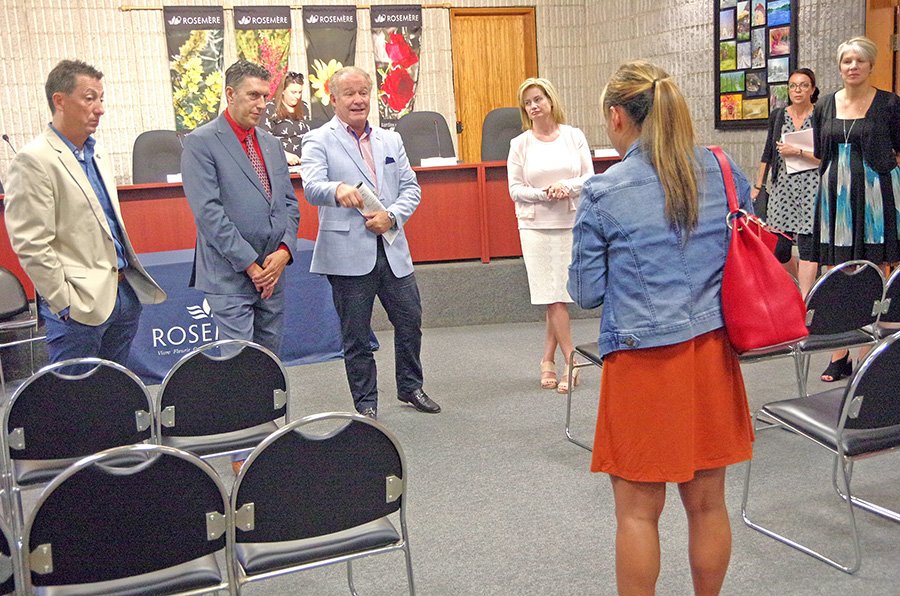
Martin C. Barry
Lingering concerns about future flooding in Rosemère as well as questions about the town’s new billing system for the water tax were two major issues which emerged during the latest town council meeting on July 8.
Town’s 2020 flood plans
During the open plenary session which takes place prior to the regular council meeting, a resident of Thorncliffe St. asked Mayor Eric Westram what measures the town is planning in case there is flooding next year similar to what was experienced this past spring.
Take a look at the
featured Local Savings
at the bottom of this page!
“We have a study going on at the moment,” said Westram. “We’re studying the three dams that we have on our territory to see if they could resist another flooding situation. We’re also looking at the general territory to see if there’s a need to put extra dikes to prevent anything from happening.”
Sandbags no longer do
According to Westram, the idea of using sandbags each year now for the past few years is starting to wear a little thin, considering the flooding situation appears to be getting more serious with the increasing prevalence of environmental warming.
“What we’d basically like to do is stabilize the situation as much as we can,” he said. “Now the problem is that the government has put a stop on all construction and renovations in the flooded areas. So even if I wanted to do something like that tomorrow morning, I wouldn’t be allowed to put it.”
New flood zones in effect
As Westram said, the provincial government has issued a new flood-zone map with greatly extended coverage – and which a number of communities and municipalities on the North Shore, in Laval and in the Montreal region are contesting for what they claim is inaccuracy.
“The cities are contesting the flood zones because the map that came up, to us it doesn’t make any sense. If you look at that map, there are places that were never flooded and that will never be flooded. So there’s a sort of negotiation going on at the moment between the government and the different cities. What we want the map to reflect is the actual reality of the situation.”
Construction freeze in place
Westram said he hoped the matter would be resolved before next spring, “because the problem occurs in springtime.” However, for the time being a general freeze on construction or renovations in the new flood zones is in effect, he added.
The mayor said that two flood-zone maps are currently circulating: one produced by the Communauté métropolitaine de Montréal, and another issued by the provincial government. He called the former “a good reflection of the situation,” while saying in the case of the other the province “decided to put flood zones almost everywhere – which makes no sense.”
They want map revised
He said Rosemère and other municipalities are asking Quebec to recognize the CMM map, although some corrections might also be made to it. Westram also suggested that what the town also wants is for Quebec to create rules allowing property owners to build flood defences of their own.
As was the situation last month, a number of Rosemèrites came forward at this month’s council meeting to express a degree of befuddlement with the water tax bills they received beginning this spring. Rosemère’s water billing system has been revamped to reflect higher water consumption in the form of a higher tax for those users.
Water bill questions again
However, some residents have complained that they don’t understand why they’ve being billed more when they are not aware of having used more water over the past year. A woman at the July council meeting in this situation was told to cheque for water seepage in her household, including run-on toilets.
“You’d be surprised,” said Westram, noting that he had one faucet in his house that was leaking a drop of water every four to five seconds. He said he left a bucket beneath it, and upon returning in the evening the bucket was overflowing. “It’s amazing how a slight run in a toilet or a leaky faucet can cause water consumption to rise.”















